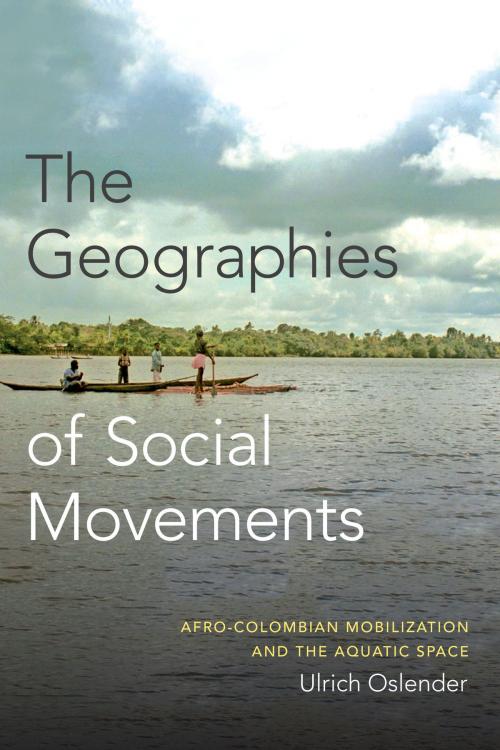The Geographies of Social Movements
Afro-Colombian Mobilization and the Aquatic Space
Nonfiction, History, Americas, Latin America, Social & Cultural Studies, Social Science, Anthropology| Author: | Ulrich Oslender | ISBN: | 9780822374404 |
| Publisher: | Duke University Press | Publication: | March 10, 2016 |
| Imprint: | Duke University Press Books | Language: | English |
| Author: | Ulrich Oslender |
| ISBN: | 9780822374404 |
| Publisher: | Duke University Press |
| Publication: | March 10, 2016 |
| Imprint: | Duke University Press Books |
| Language: | English |
In The Geographies of Social Movements Ulrich Oslender proposes a critical place perspective to examine the activism of black communities in the lowland rain forest of Colombia's Pacific Coast region. Drawing on extensive ethnographic fieldwork in and around the town of Guapi, Oslender examines how the work of local community councils, which have organized around newly granted ethnic and land rights since the early 1990s, is anchored to space and place. Exploring how residents' social relationships are entangled with the region's rivers, streams, swamps, rain, and tides, Oslender argues that this "aquatic space"—his conceptualization of the mutually constitutive relationships between people and their rain forest environment—provides a local epistemology that has shaped the political process. Oslender demonstrates that social mobilization among Colombia's Pacific Coast black communities is best understood as emerging out of their place-based identity and environmental imaginaries. He argues that the critical place perspective proposed accounts more fully for the multiple, multiscalar, rooted, and networked experiences within social movements.
In The Geographies of Social Movements Ulrich Oslender proposes a critical place perspective to examine the activism of black communities in the lowland rain forest of Colombia's Pacific Coast region. Drawing on extensive ethnographic fieldwork in and around the town of Guapi, Oslender examines how the work of local community councils, which have organized around newly granted ethnic and land rights since the early 1990s, is anchored to space and place. Exploring how residents' social relationships are entangled with the region's rivers, streams, swamps, rain, and tides, Oslender argues that this "aquatic space"—his conceptualization of the mutually constitutive relationships between people and their rain forest environment—provides a local epistemology that has shaped the political process. Oslender demonstrates that social mobilization among Colombia's Pacific Coast black communities is best understood as emerging out of their place-based identity and environmental imaginaries. He argues that the critical place perspective proposed accounts more fully for the multiple, multiscalar, rooted, and networked experiences within social movements.















